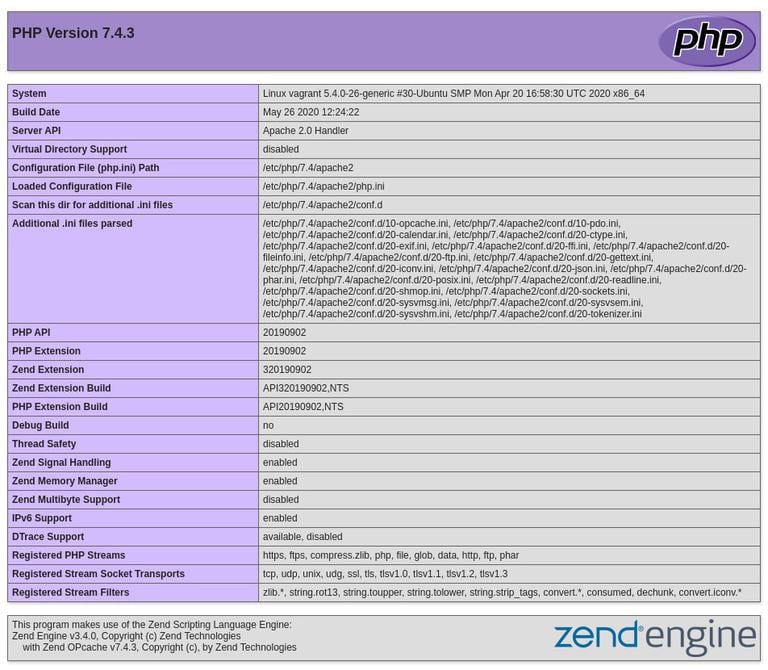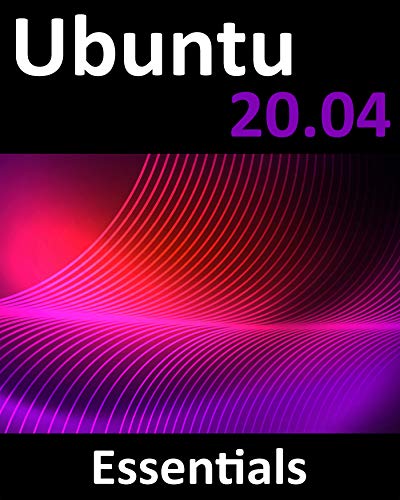

With Zend OPcache v8.2.0, Copyright (c), by Zend Technologiesįor me I need to install PHP8.1 as the software I'm using isn't ready for 8.2. Zend Engine v4.2.0, Copyright (c) Zend Technologies I was seeing the following when I ran the php -v command PHP 8.2.0 (cli) (built: 10:52:42) (NTS) However, doing this action installed PHP8.2 apache.
UBUNTU 20.04 PHP 8.1 UPDATE
I ran a one last check by running the update command sudo apt update & sudo apt upgrade -y You can confirm that ondrej has been installed sudo grep -rhE ^deb /etc/apt/sources.list* | grep -i ondrejĪnd see the following response deb focal main Now you'll see a response like Hit:1 focal InRelease Press to continue or Ctrl-c to cancel adding it. # LC_ALL=C.UTF-8 add-apt-repository ppa:ondrej/php WARNING: add-apt-repository is broken with non-UTF-8 locales, see PLEASE READ: If you like my work and want to give me a little motivation, please consider donating regularly: If you are using nginx, you are advised to add ppa:ondrej/nginx-mainline If you are using apache2, you are advised to add ppa:ondrej/apache2ģ. If you are using php-gearman, you need to add ppa:ondrej/pkg-gearmanĢ. IMPORTANT: The -backports is now required on older Ubuntu releases.īUGS&FEATURES: This PPA now has a issue tracker:ġ. You can get more information about the packages at Don't ask for end-of-life PHP versions or Ubuntu release, they won't be provided.ĭebian oldstable and stable packages are provided as well: Only Supported Versions of PHP () for Supported Ubuntu Releases () are provided. The initial response will be Co-installable PHP versions: PHP 5.6, PHP 7.x and most requested extensions are included. This action provides the latest version of PHP. Therefore we can install it, by adding the Ondrej PHP repository. PHP 8.1 is not available on the main Ubuntu repositories. Install Ondrej PHP repository on Ubuntu 20.04 Use 'sudo apt autoremove' to remove them.Ġ upgraded, 0 newly installed, 0 to remove and 0 not upgraded. Geoip-database libatomic1 libfwupdplugin1 libgeoip1 libllvm11 libxmlb1 The following packages were automatically installed and are no longer required: Software-properties-common set to manually installed.Īpt-transport-https is already the newest version (2.0.9). Software-properties-common is already the newest version (0.99.9.8). DoneĬa-certificates is already the newest version (20211016ubuntu0.20.04.1). sudo apt install ca-certificates apt-transport-https software-properties-commonĪs an idea the response for me was: Reading package lists. Install the following requirements for the installation to proceed smoothly. To action the installation of PHP 8.1, there are a few prerequisites that need to be installed. With Zend OPcache v7.4.3, Copyright (c), by Zend Technologies Zend Engine v3.4.0, Copyright (c) Zend Technologies The response I had was PHP 7.4.3 (cli) (built: 09:53:44) ( NTS )
UBUNTU 20.04 PHP 8.1 HOW TO
Basically I am saying that you can’t get any closer than that.To begin update the server using the command sudo apt update & sudo apt upgrade -yįor more details about this process see How To Update All Packages Linux.Ĭheck the current PHP version using php -v The PHP packages in my Ubuntu PPA and Debian DPA matches the official packages in Debian. That means the official packages in Debian and Ubuntu are either my work or they are based on my work. I am a Debian Developer since year 2000, and I have been packaging PHP for Debian since PHP 5. Bullseye/amd64).Īlpine versions are currently mostly used in the official PHP Docker registry, yet the above PPA for PHP (5.6, 7.0, 7.1, 7.2, 7.3, 7.4, 8.0 and 8.1) ( ppa:ondrej/php) mostly by Ondřej Surý is quite known and trusted. make, docker-php-extension-installer) and the former - uses pre-compiled binaries (e.g. Just in case, currently, the main difference between relatively common Debian and Alpine Linux PHP extension installations is that the latter builds extensions (i.e. Printf - '%s\n' "deb $( lsb_release -sc ) main" > '/etc/apt//php.list' & \

$ sh -c 'echo "deb $(lsb_release -sc) main" > /etc/apt//php.list'įor example, a Dockerfile: FROM debian:stableĪpt-transport-https lsb-release ca-certificates curl & \Ĭurl -sSLo '/usr/share/keyrings/' '' & \ You might find the following also appropriate: #!/bin/sh


 0 kommentar(er)
0 kommentar(er)
